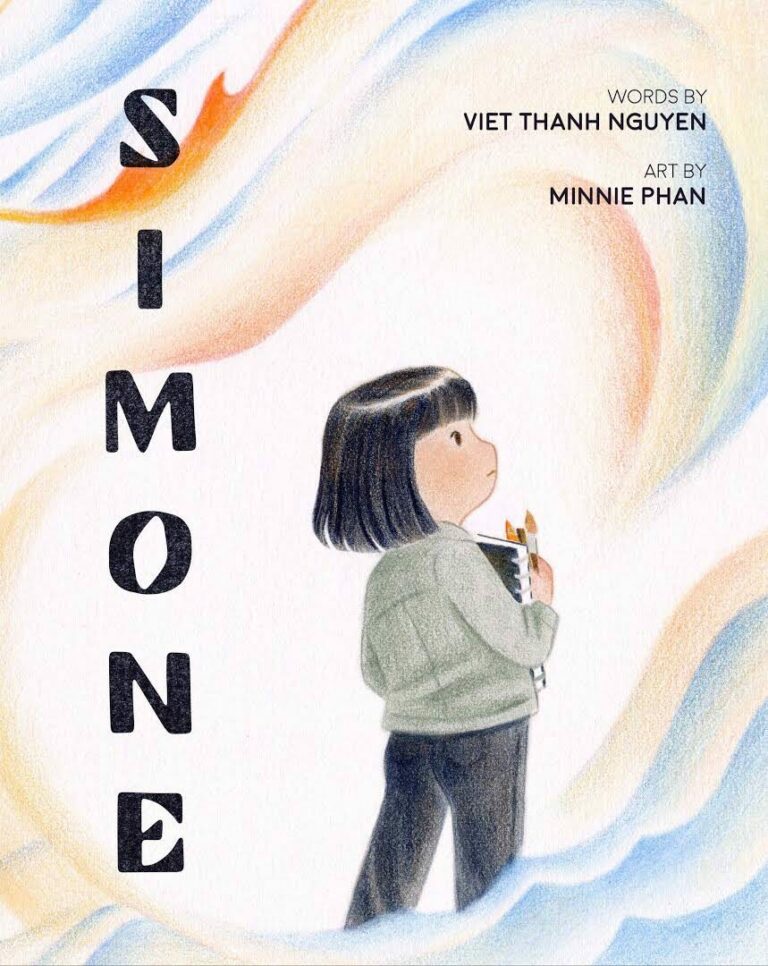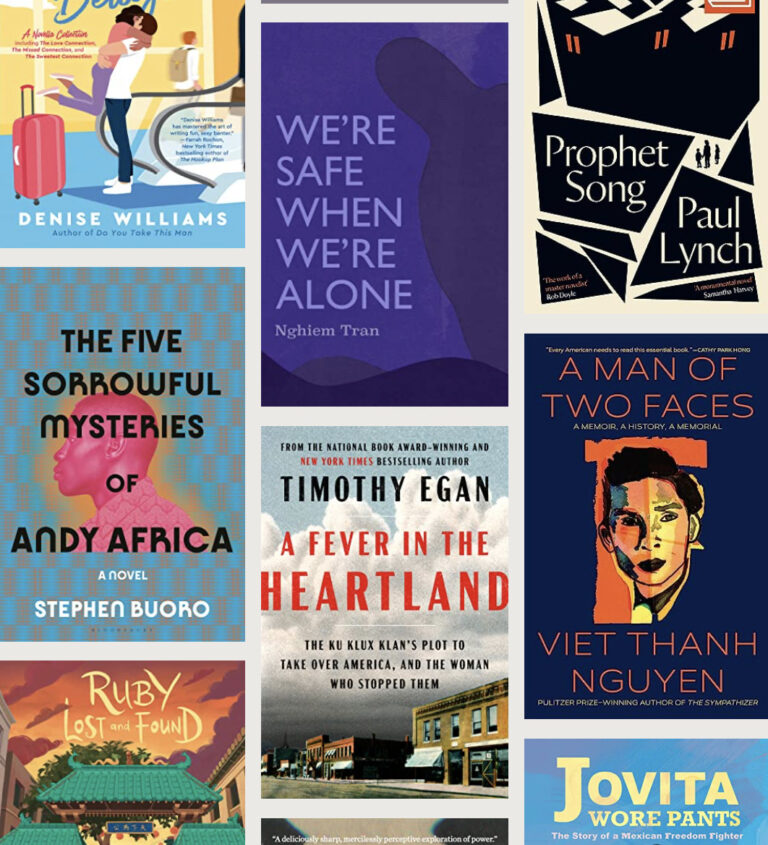Anu Kumar of Scroll.in reviews Viet Thanh Nguyen’s short story collection, The Refugees.

A meme bearing a much-cited Naguib Mahfouz quote has been doing the internet rounds recently: “…Home is where all attempts to escape cease.” Words that seem particularly relevant and poignant at this juncture, with the world facing a refugee and humanitarian crisis, admittedly the most critical, since the World War II years. A crisis made immediate by television images and only aggravated by related, startlingly ill-thought governmental acts.
Viet Thanh Nguyen’s stories in The Refugees tell of the piquant situation refugees find themselves in. Nostalgia for a home lost is necessary but remembering just isn’t enough. It brings pain and heartsickness as memories may be unwanted then and hard to let go. A refugee is someone who lives between homes, someone who seeks refuge, but home is never the present, it is also the home(land) of the past, and even a future state of being, when one hopes that (one’s) memories will be safe, even bearable. But that is difficult, as it appears for most of the narrators in Nguyen’s stories.
Memories and living
In his work of nonfiction on the Vietnam War, called Nothing Ever Dies: Vietnam and the Memory of War (2016), Nguyen recalls the words of the French historian Paul Ricoeur on the necessity to remember so as to live, but the equal importance of forgetting and of how too much of both can be “fatal” for human well-being in general. Moreover, remembering and forgetting are intertwined. “It’s a double helix making us who we are, one never without the other”.
Ricoeur, as Nguyen writes, had written of unjust and just ways of forgetting, just as there are similar ways for remembering. “Unjust ways of forgetting are much more common than just ones. They involve leaving behind a past that we have not dealt with in adequate ways”. Nguyen talks of his parents, who made a new life for themselves in California and rarely spoke of the two decade Vietnam war (1955-1975), though “their lives exuded the force of memories of which they rarely spoke”.
There were many, like his mother, with such memories, unable to articulate them. Yet, they will never be numbered among the war’s casualties. Nguyen, however, doesn’t go so far as to talk of the guilt over the possibility that some refugees know they are lucky to survive when others have perished.
Contradictions and complexities
It is this unspeakable contradiction, the conflict in the heart, that can at times lead to a dualism in behaviour: remember the “sympathizer”, the eponymous narrator in Nguyen’s Pulitzer Prize-winning novel, who understands both sides and so is unable to choose sides. In much the same way, memories impose a strange burden – why and how we remember and forget and the choices that we make. Nguyen writes about this struggle in spare and yet heart-stopping ways.
In “Black Eyed Women”, a ghostwriter meets the ghost of her brother who had apparently perished in the act of saving her, his sister, from pirates during the long boat ride out of the war zone in Vietnam. Those lost or those dying an untimely death always revisit. The narrator realises in time that her ghost brother will no longer return after his initial visits. But the living retain the ghostly presence of a past that can never be changed.
Both the narrator and her mother “see” the brother/son, but never, as it appears, at the same time. He tells the narrator during one such visit that it is she who, not being able to live, is in fact dying. In almost the same way, the words and gestures of the man – the only surviving member of an air-crash that killed his entire family – whose story the ghostwriter-narrator is writing, resonate with the latter.
The survivor sits in an airless room, windows closed, as if to preserve even the quality of air his family had breathed before the untimely disaster. As an experienced ghostwriter, the narrator also knows of memories that emerge later, with retelling, or even suddenly, and that the most cherished memories are those that weren’t even deemed worth remembering to begin with.
Remembering is also forgetting
On the other hand, there is the remembering that seems liminal, or that, as Nguyen has written in Nothing Ever Dies, “line” the state of forgetting. In “I’d Love You to Want Me”, the professor who is losing his memory constantly refers to Mrs Khanh, his wife, as Yen. There is pity in his wife’s response to his fading mind, and jealousy – as she writes of his lapse in the professor’s diary where he makes a note of his daily slips, even copying his illegible scrawl – and then there is also love. The title, based on a song they had danced to, could almost be Mrs Khanh’s own longings and uncertainties about the man she is married to, despite a lifetime spent together.
In another story, Liem does not have the refugee dreams of achieving success in a new land. Having just braved yet another perilous ocean voyage, first from Vietnam to Guam, then to San Diego and finally, San Francisco, he is just content to have a job, and make enough money to send home. He must never forget his family, as his father “warns” in his letter.
Yet, in the home of his sponsor, who is in a relationship, Liem, as one of this story’s “other men”, is frightened of the consequences of his actions. He envies the laconic freedom of the new country he has arrived in, yet cannot bring himself to claim it. He is not so much conscious of love, as he is of the obligations it imposes, the duties one must bear in the name of love.
“War Years” is about the lingering effects of war and what follows in its long aftermath, of divisions that continue to exist between people, the sides one must choose, and loyalties hard to let go of. The narrator’s parents manage a store in San Jose’s New Saigon, and he recounts his mother’s exchanges with Mrs Hoa, who comes by often to demand donations to fight the Communists who have invaded South Vietnam soon after the American exit. The narrator’s mother fears for their new-found freedom and riches, and sees Mrs Hoa as a threat to all this.
Things felt and left unsaid
Some of Nguyen’s fiction, complex and layered as it is, reminds one of detailed nonfiction work on the same themes. Mark Wolyns book, It Didn’t Start With You: How Inherited Family Trauma Shapes Who We are and How to End the Cycle (2016) refers to generational experiences with trauma. “Even if the person who suffered the original trauma has died, or the story has been forgotten or silenced, memory and feelings do live on”. This is indeed seen in the stories that make up The Refugees. Suppressed pasts, Wolyns suggests, are also passed on as legacies “encoded in everything from gene expression to everyday language, and they play a far greater role in our emotional and physical health (than believed)”.
In “The Americans”, James Carver and his Japanese-American wife Michiko travel to Vietnam on a visit to their daughter Claire. She informs them while taking them around that “home” is where she is now, in Vietnam, for she has a Vietnamese soul. Claire has a boyfriend of Vietnamese origin and teaches English to local schoolchildren, but her father scoffs at her reply, in turn bringing up a surge of suppressed memories. Bitterness and allegations flow thick and fast, all beginning with a casual conversation.
This is a story more novelistic in its scope and in the themes it barely touches on. Carver, we learn, is Afro-American, and there are his own accumulated traumas. These, on the other hand, do not seem to afflict Claire, who accuses her father of bombing innocent villagers, during his time in the air force, a fact that he has never shared with anyone. But fiction can go where social science fails. It can hint at complexities and not try to resolve them, especially when one is on amoral ground.
In a couple of stories, some characters appear familiar though they may have different names. For instance, comical and clueless fathers, such as James Carver in “The Americans”, and Thomas’s father in “Someone Else Besides You”. The latter fairly bulldozes Thomas, his all-grown 33-year old son, to reunite with Sam, the latter’s ex-wife, for they are meant to “have a happy life together”.
Like Claire in “The Americans”, Thomas is aware of his own past and his father’s too, conscious always of his father’s betrayals of his wife, Thomas’s beloved mother, which commits him to some vague acts of atonement. But it is a guilt that leaves his father unruffled, as it does his father’s newest girlfriend, Mimi.
The competing, inexplicable pulls of love, which sometimes exist as a necessity, or despite themselves, appear in “Fatherland”, a title that denotes a return to the old country (Vietnam) and also Vivien’s desire to see her father and his other family, where his three children have the same names as Vivien and her siblings. The new life elsewhere doesn’t always prove to be a dream life, as Phoung, the other sister, realises, when her own dreams seemingly shatter.
The older women in these stories, in most instances, have a mind of their own, which invariably make them do the right thing. But for the younger narrators, living presents a complex art of renegotiation and balance. There are memories of being refugees, of escaping and losing love, even if one has not experienced these traumas directly. Such memories seep into one’s bloodstream, it is in one’s DNA, and the past that one thinks one has left behind is always present, as a constant companion, a necessary and beloved burden.


